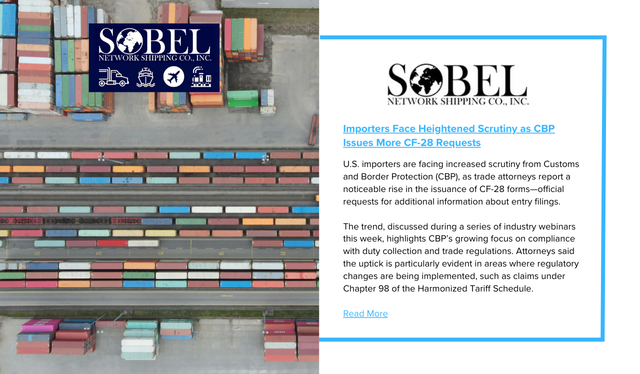U.S. importers are facing increased scrutiny from Customs and Border Protection (CBP), as trade attorneys report a noticeable rise in the issuance of CF-28 forms—official requests for additional information about entry filings.
The trend, discussed during a series of industry webinars this week, highlights CBP’s growing focus on compliance with duty collection and trade regulations. Attorneys said the uptick is particularly evident in areas where regulatory changes are being implemented, such as claims under Chapter 98 of the Harmonized Tariff Schedule.
A CF-28 inquiry requires importers to provide documentation or clarification, often within 30 days, to substantiate claims made during the entry process. Failure to respond adequately can expose companies to penalties, enforcement actions, or delayed clearance of goods.
Legal experts emphasized that even long-time importers, including smaller businesses, are increasingly being targeted by these information requests. They urged companies to strengthen internal controls, educate suppliers, and build contractual safeguards to ensure suppliers are liable for the accuracy of data provided.
Potential areas of focus for CBP include transshipment practices and supply chains linked to high-risk regions such as Southeast Asia. Attorneys advised importers to maintain detailed records, bills of materials, and thorough documentation of manufacturing processes to mitigate compliance risks.
Industry professionals also cautioned against over-reliance on customs brokers, noting that while brokers can provide valuable guidance, the ultimate responsibility for compliance rests with the importer of record.
Experts said the heightened enforcement environment underscores the importance of conservative compliance strategies, expert consultation, and rigorous recordkeeping as companies navigate shifting tariff structures and regulatory changes.


